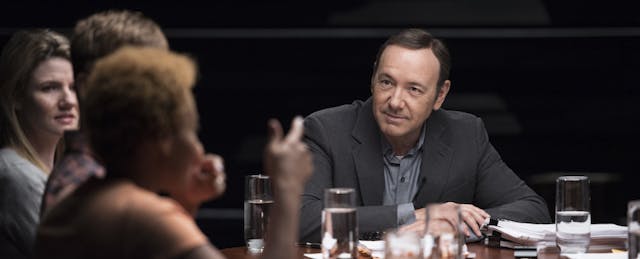MasterClass offers a photography class with Annie Leibovitz, a writing workshop with James Patterson and just added an acting class with Kevin Spacey. But founders David Rogier and Aaron Rasmussen may want to consider offering a class themselves: How to Win Venture Capital Funding.
MasterClass has raised a $15 million Series B round and disclosed three previously unannounced rounds: a $4.5 million Series A and two seed rounds totalling $1.9 million. New Enterprise Associates led the Series B, Javelin Venture Partners led the Series A and Harrison Metal led the seed rounds. Other investors include Bloomberg Beta, Novel TMT Ventures, Advancit Capital, WME Ventures, Downey Ventures, Usher, Yan-David Erlich and Matthew Rutler of MX Investments. Founded in May 2015, the company is based in San Francisco.
MasterClass’ name gives hint to its products: Online courses taught by famous practitioners of several crafts. Usher teaches performance, Serena Williams gives virtual tennis lessons and Christina Aguilera leads a new class on singing. Users pay $90 for the class’ 10-25 video lessons, interactive exercises and workbooks, accessing them by computer, tablet or smartphone.
The company has seen fast growth since its founding in May 2015. The New York Times wrote in a September 2015 story that the platform had garnered over 30,000 signups since its inception. The founders did not share current numbers but cited a “very successful holiday season” as a motivation for investors.
MasterClass positions itself as different from the more common types of online courses such as MOOCs and skills-based credentialing platforms. Their audience may be different, too; the founders claim that 50 percent of their students have never partaken of an online course. They divide their audience into beginners and what Rogier calls “lifelong learners who watch TED and listen to NPR.”
Rogier and Rasmussen also wanted to one-up the production value of online courses: Noted film directors oversee the production of each class, adding a narrative element and precise filmmaking to the educational content. The director of Netflix’s “House of Cards” worked with Kevin Spacey on his class to create an arc that pulls users in. The founders aimed to push back on the “webcam in the back of a class model,” as they call it, that has plagued other online classes. Neither founder would share exact numbers, saying only that they’ve seen engagement well above the four to five percent completion rate for traditional MOOCs.
The famous teachers also engage with their students. From time to time, Serena Williams reviews students’ videos of their strokes. James Patterson holds office hours via Skype and has been so impressed with the quality of writing that he’s offering the coauthorship of his next book to a MasterClass contest winner.
The company hopes to see more instructors impressed by their students soon; it plans to use the funding to film new classes, double the size of its team and create more supplementary interactive tools. These tools can be both specific to one class or perform multiple functions across different lessons. Aguilera’s class will have a built-in vocal range finder. James Patterson’s class asks students to rate and review their classmates’ novels’ first lines, a feature that also allows students in Dustin Hoffman’s acting class to critique each other’s monologues.
With such far-reaching brand names, the instructors’ pay grade would break the bank of most companies even with a fresh round of investment. Kevin Spacey reportedly earned $500,000 per episode of “House of Cards.” What brings the big names to MasterClass, Rogier asserts, is their love of teaching.
“Instructors definitely have alternatives where they could be making a lot more money,” he said. “They have to want to teach to work with us. Kevin Spacey, for example, has been teaching acting workshops for years.” The teachers certainly don’t lend their expertise for free, though; they receive an advance and also, Rogier said, “participate in the success of their classes.” They’re paid based on the popularity of their class, a factor that forms part of Rogier and Rasmussen’s pitch to each teacher’s business manager.
The founders have done a lot of this pitching; they started MasterClass by cold calling stars and asking them to teach. Rogier had a connection with Dustin Hoffman’s daughter, according to the Times. Since those early days, instructor growth has snowballed, according to Rasmussen. Some stars even come to MasterClass saying that they’ve watched another instructor’s class. Usher references Dustin Hoffman’s class in his performance workshop.
And who are the founders’ dream instructors?
“Aaron Sorkin and Elon Musk,” said Rogier. “I’m not a screenwriter, but listening to Sorkin’s work is amazing. There is a rhythm to his scenes. Elon Musk has irrevocably changed three fields. Most people have one giant company that changes an industry.”
Rasmussen’s wish sounds like a joint class in the making: “Christopher Nolan and Ridley Scott. I love that they’re both so adept at imagining and creating immersive worlds.”


